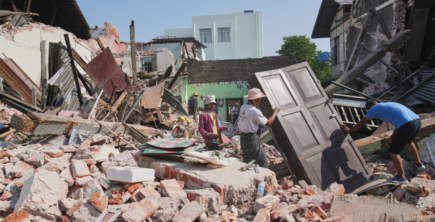
Healthy Individuals & Communities
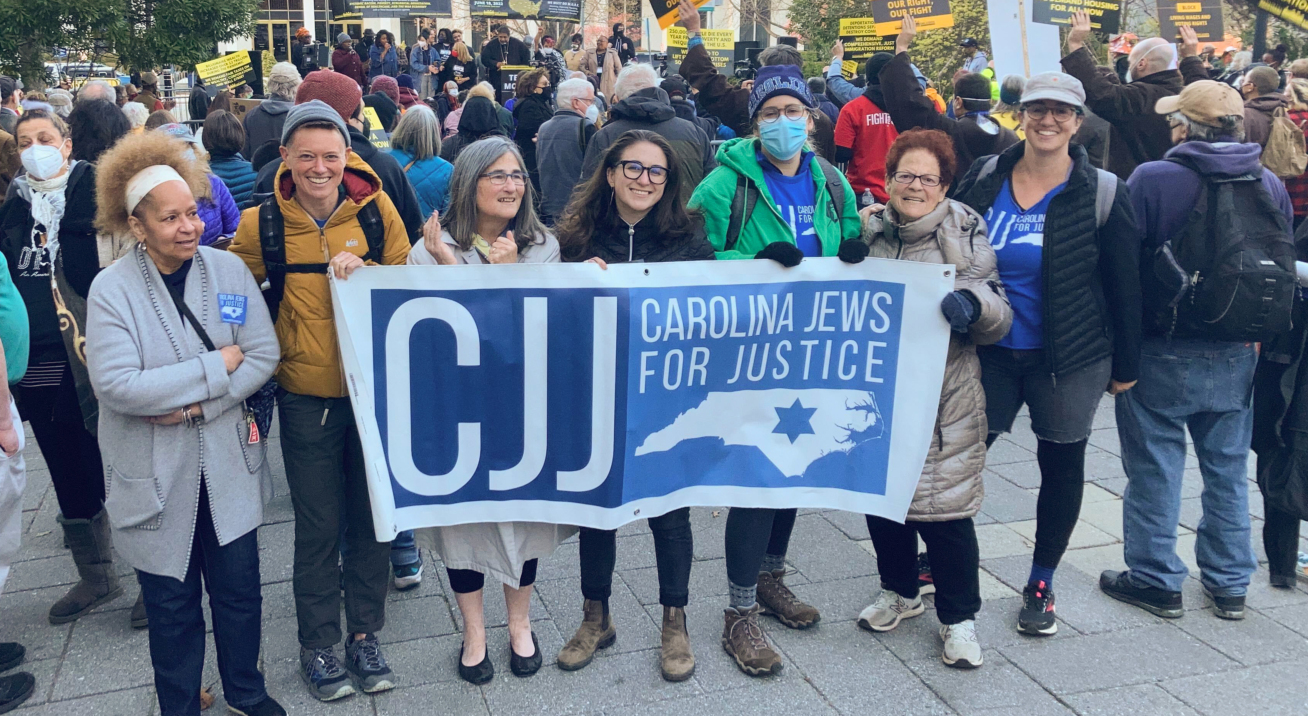
We met with Carolina Jews For Justice (CJJ) to learn more about their organizing strategies for maintaining momentum built up during the 2024 election. But the election isn’t over yet: four and a half months later, CJJ is still working alongside their partners to demand that all votes be counted.
“There have been three recounts,” Abby Lublin, CJJ’s executive director, said in an interview, describing the state’s still-unsettled Supreme Court race in which the incumbent Allison Riggs leads challenger Jefferson Griffin by 734 votes. Griffin has petitioned to invalidate more than 65,000 votes from the election, and the case is currently being considered by three justices from the state Court of Appeals.
The Supreme Court race — the only undecided race remaining from the 2024 election — is an example of what’s at stake as CJJ works to deepen civic engagement and organize a non-partisan Jewish voice for justice in North Carolina. North Carolina has seen a surge in voter suppression in recent years, part of a broader nationwide trend towards minority rule. It’s in this context that CJJ is building a faith-driven movement for justice, guided by Jewish values.
A grantee partner with the Movement Voter Fund at Tides Foundation, CJJ’s strategy is both simple and ambitious: they’re building strong partnerships with other faith groups and deepening relationships within and between communities to build resilience. During the last election, this meant working with other faith groups to create “chill teams” of trained de-escalators to counter voter intimidation at the polls. These rapid response teams could be deployed within an hour to lower the temperature at polling sites where groups attempted to disrupt the voting process.
“Jews vote in really high numbers, so our work is less about GOTV among our constituencies and more about people power to make sure everyone’s voice is heard,” explained Lublin. “And a lot of safety and protection work is now part of our work.”
When rapid response wasn’t enough, CJJ partnered with UU Justice NC to host “Joy to the Polls” events at sites where voter intimidation was an ongoing problem. “People showed up with fleets of ukuleles and guitars and were politically nondescript, just singing about love and joy and democracy,” said Lublin. “It was positive energy and it was a vibe, and it shifted the entire energy of these sites.”
This focus on voter protection has continued throughout North Carolina’s contested Supreme Court election, as CJJ members who are among the 60,000 people whose votes are being challenged participated in storytelling campaigns asking not to have their votes taken away. Lublin stressed that while CJJ isn’t leading on this issue, their work and partnership, along with that of other grassroots organizations in North Carolina, is part of what has led to such an effective mobilization. “This last cycle felt like there was better formation, less turfism, less no, we do that. It was a lot more of who does this well, and how can we get behind them?”
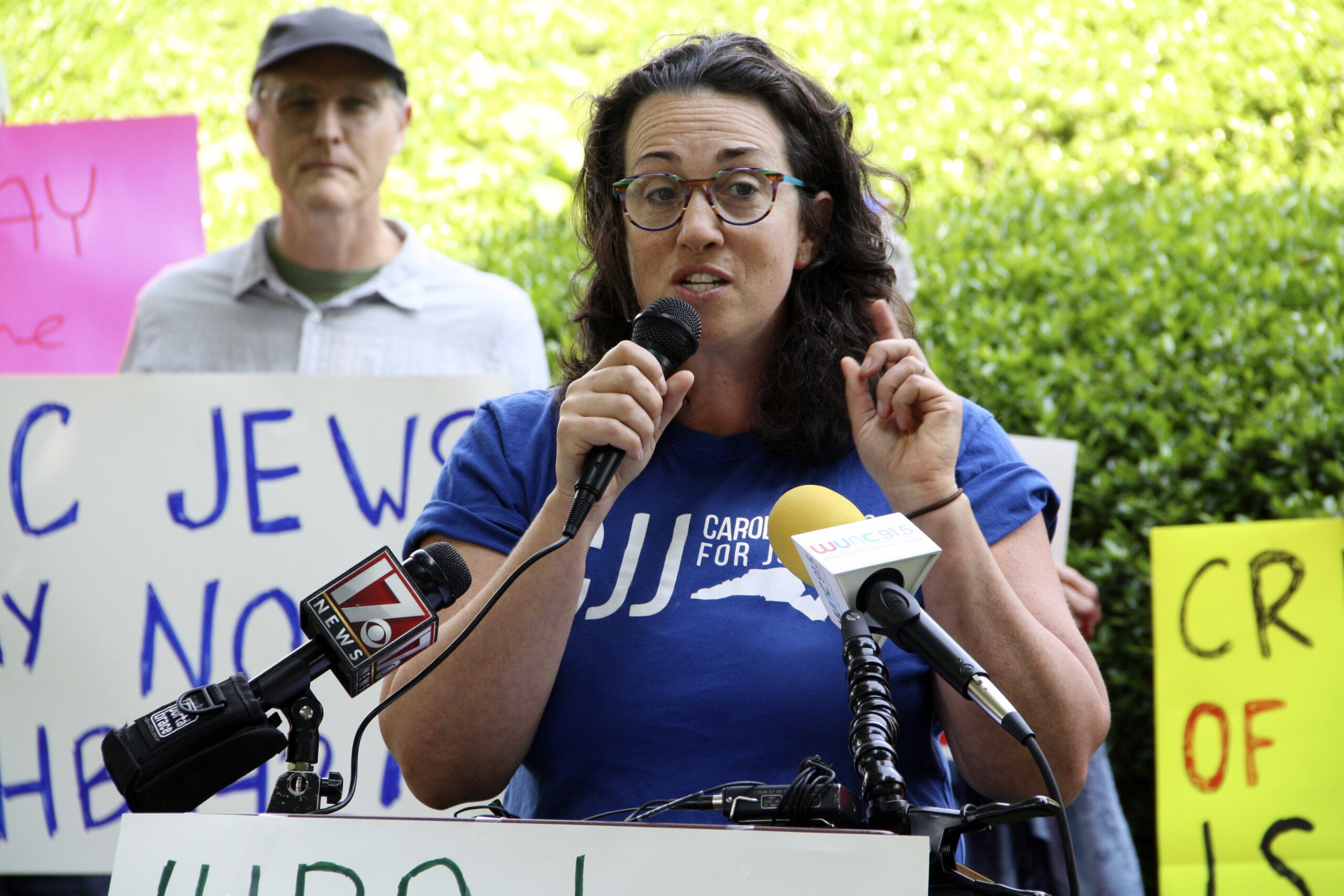
Abby Lublin, the executive director of Carolina Jews for Justice, said that combating antisemitism is “a part of everything we do.” (AP Photo/Makiya Seminera)
CJJ does lead on combating antisemitism, which the organization doesn’t consider separate from any of their other social justice work.
“It’s a part of everything we do,” said Lublin. “As we’re chopping wood and carrying water with our partners, there are opportunities. Antisemitism is often used to divide people, to create fear, to put forth a regressive agenda and to blame Jews for people’s ills. We see those opportunities as we work together.”
During a time of heightened division, CJJ’s organizing work is building bridges between communities. Lublin described a postcarding event hosted at a synagogue in Western North Carolina, during which the CJJ organizer asked their contact to offer interested participants a tour of the facility. For many non-Jewish participants, it was their first time in a synagogue. They were surprised, said Lublin. “They were like, we never knew. That looks like our church.”
These relationships have become especially powerful during the past year and a half, when, Lublin adds, “we have Jews who think that people aren’t here for us, or that they’re antisemitic.” For CJJ, trust is built by working alongside those from other communities and connecting over shared values and ideals. “We’re fighting this narrative that we’re getting pushed out because of our politics. That has not been our experience, because we have these deep relationships, and we focus on what’s right in front of us.”
CJJ’s next step is to take the deep relationships built during the past election cycle and transform them into a powerful coalition. They’re currently partnering with Unitarian Universalist and Quaker groups to support the Keep Gate City Housed Campaign, an eviction prevention project in Greensboro. Both were groups CJJ previously partnered with during nonpartisan voter registration training in 2024.
Nonpartisan election year organizing is an entry point, Lublin said. The goal is to deepen engagement over time to create powerful, resilient communities. People come in for the urgency of an election, “and then, as they’re walking together, canvassing together, registering voters here, they say Oh, I’m part of this eviction defense program here, and oh, tell me more about that. You build that.”
On February 25th, the group launched a faith table through Blueprint NC, a convener focused on building a more inclusive and multiracial democracy. The goal is to better share resources, strategy, and information between religious groups, so that volunteers with specific expertise — ICE Watch training, for example, or fluency in different languages — can mobilize more efficiently across the state.
Lublin grew animated when describing the potential for this kind of collaboration. “Imagine the power of that across the state. Having churches and mosques and synagogues and unaffiliated folks and non-brick-and-mortar people of faith and people of conscience coming together. And imagine a strong faith left. When people think of faith, it’s been co-opted by the right. But these values are our values.”
She pointed to the evolution of the interfaith “chill teams” as one example of how the faith table can work going forward. The same peaceful de-escalators who showed up for election protection in 2024 are now trained and ready to de-escalate conflict at school board meetings, abortion clinics, and drag queen story hours.
“We’re going through this process now where we can just feel how powerful we are by mapping these resources, like what congregations in what part of the state do we have who are willing to do this and have the resources to do that, and what people have what relationships,” Mark Bochkis, CJJ’s communications director, added. “It’s a really, really exciting time right now.”
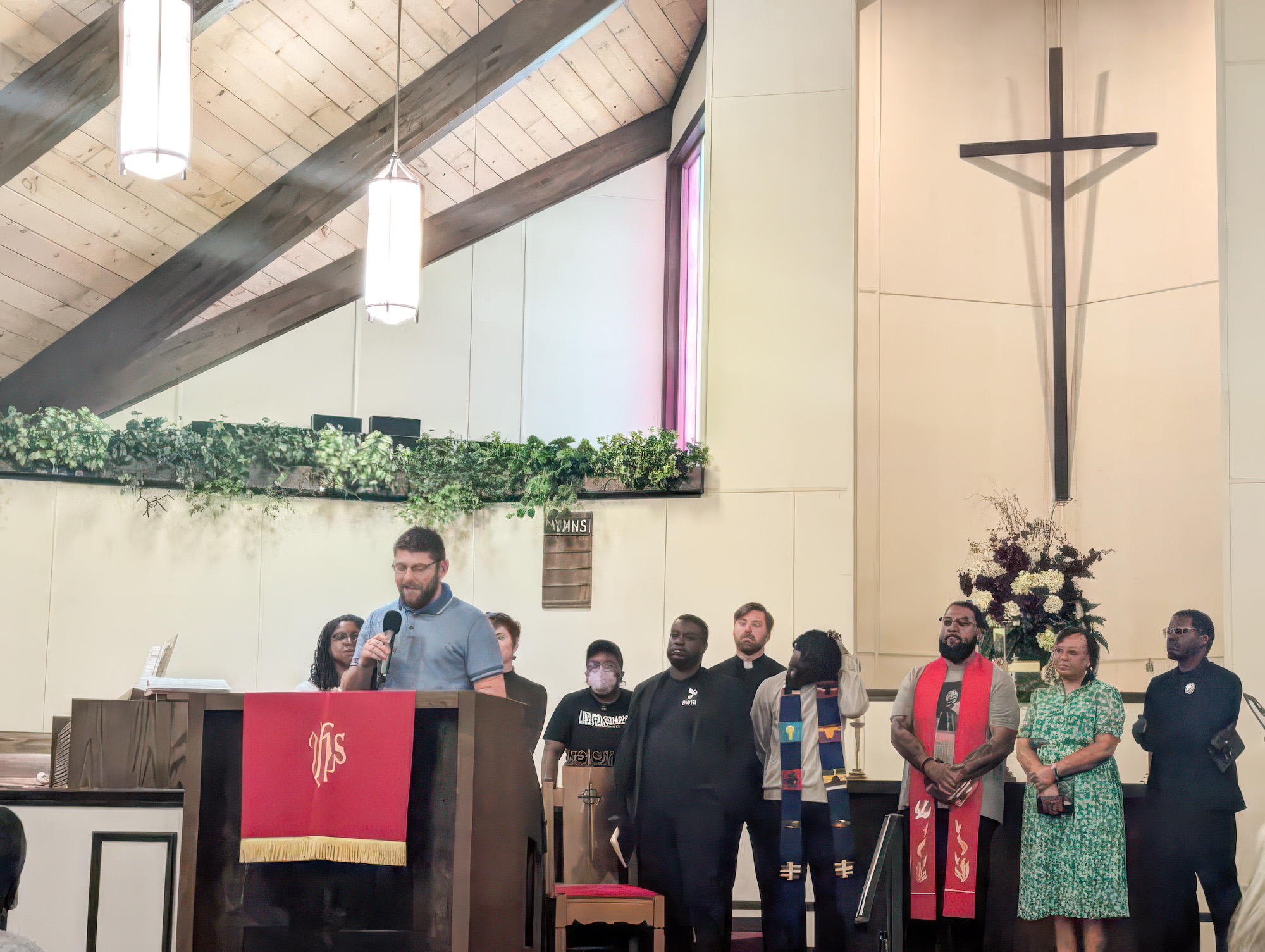
CJJ is partnering with other faith groups across the state to share resources, strategy, and information in support of multiracial democracy. “What we need to do is find commonality and humanity in all of us,” said Mark Bochkis, CJJ’s communications director. (Image credit: Gwen Frisbie-Fulton)
For CJJ, the relationships which led to the creation of the faith table are the result of years of work. Both Lublin and Bochkis stressed that while events like postcarding and door-knocking might get volunteers in the door, they don’t necessarily lead to deep conversations with community members. What does work are repeated conversations about the local issues that matter to people, over and over again, for years.
“Meet people’s needs and get them in the door to share those needs and then understand where that need comes from,” said Lublin. “It’s long-term, deep investment, slow burn work.” A weekly potluck at a house of worship, she said, does more to support genuine relationship building and connection than any postcard ever could. “Provide food to get people in a room together to listen to each other.”
Bochkis wishes that more funders would invest in long-term organizing programs that lean into new ways of doing things. He pointed to recent successes by rural organizers in North Carolina as an example of innovative approaches that are working where old systems had failed. Taking the time to empower rural working people and make them organizers, as groups like Down Home North Carolina are doing, leads to change in a way that parachuting in every four years to knock on some doors does not.
For CJJ, which does not have a large rural base, supporting these kinds of programs means working in partnership to contribute people power for legal change: driving people to the state capitol to meet with legislators, writing letters to the editor, volunteering.
People are easy to mobilize right now, Lublin said, but it depends on the ask. “No one wants to attend another meeting.” What people are looking for are opportunities to take concrete action to make things better in their own backyard. When they’re given those opportunities, as in the case of the chill teams, people show up.
Ultimately, CJJ believes that grassroots-led, relationship-based organizing is our best path forward to a more just and compassionate world. “Politics is not going to get us out of this,” said Bochkis. “We don’t need more polarization, and we don’t need more, like, the other guy is bad. What we need to do is find commonality and humanity in all of us.”

Healthy Individuals & Communities
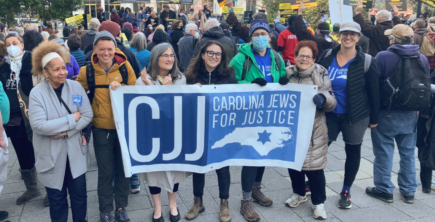
Our Community

Philanthropy

Read the stories and hear the voices of social change leaders fighting for justice.